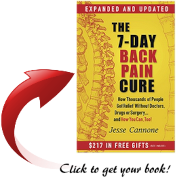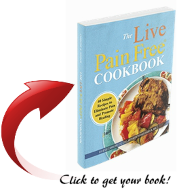The video interview of Dr. David Sinclair on last week’s article discussed how inflammation, if left unchecked, can accelerate the aging process. And thus, causing negative health effects and a weaken immune system so that the body cannot effectively manage pain. Dr. Sinclair had presented anti-inflammatory supplements and actions (e.g., intermittent fasting) to slow down the aging process, and In turn, transform the body into a more optimally healthy state. The article from the site Medical News Today titled “Which herbs help reduce inflammation?” discusses 3 herbs you can easily find and include in your meals to help fight inflammation.

Image by rawpixel.com
“Which herbs help reduce inflammation?
Many herbal remedies could have anti-inflammatory properties. However, the evidence to support the majority of these claims is lacking. Inflammation is the body’s primary defense mechanism against infections, wounds, and other forms of harm.
However, inflammation itself can be harmful in some cases. For example, many conditions can cause inflammation to remain elevated, resulting in tissue damage.
A range of anti-inflammatory drugs exist to help control inflammation in the body. However, they often have side effects and may not always be effective.
Natural compounds that are present in certain herbal remedies also have the potential to be anti-inflammatory. However, there is much less research in this area.
This article will list herbal remedies with the most evidence for their anti-inflammatory properties.
Turmeric
Eating turmeric can help reduce inflammation in people with arthritis.
Turmeric typically comes in the form of a yellow powder from the root of the turmeric plant.
It contains a chemical called curcumin, which may have anti-inflammatory properties.
Several studies have shown that turmeric can help reduce inflammation and discomfort in people with arthritis.
It works by limiting the production of molecules called cytokines, which cause inflammation.
Researchers continue to investigate how curcumin affects inflammation in a range of other conditions, such as inflammatory bowel disease. Curcumin has the most evidence base for its anti-inflammatory effects compared with other herbal remedies.
Turmeric is available in the form of capsules, tablets, teas, pastes, and extracts. Methods of taking turmeric will vary, depending on the intended use.”
Click on this link to continue reading the article =====> Which herbs help reduce inflammation?

The article on the site Medical News Today presented three herbs you can use in your daily life to fight inflammation:
- Turmeric
- Ginger
- Green Tea
One thing good about those herbs is that they can be easily obtained and included with your meals. Nothing exotic about them. And, they taste good, too. It appears that if inflammation runs rampant within our bodies, then that is bad news for our health and for keeping pain at bay. If turmeric, ginger, and green tea can help fight inflammation, then more power to us!
To Your Success & Freedom,
Glenn Shimabukuro



